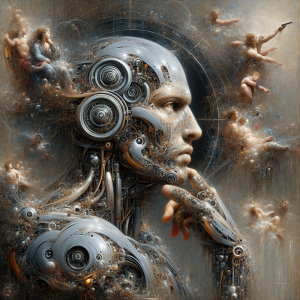The unveiling of a remarkable quantum computing breakthrough by Google’s Quantum AI division has reignited the fiery discussion about the reality of the multiverse.
Google’s quantum chip, Willow, completed a complex computational task in just about five minutes, an undertaking that would have taken the most sophisticated supercomputers approximately 10 septillion years. Hartmut Neven, the head of Google Quantum AI, points to this staggering accomplishment as potential support for the multiverse hypothesis within quantum mechanics—a theory initially proposed by physicist David Deutsch suggesting that quantum computers could harness multiple universes’ power.
Exploring Multiverse Theory: A Heated Discussion
As Willow’s prowess is heralded by some as indicative of the multiverse’s existence, dissenters present their counterarguments. They propose that the phenomena observed during Willow’s testing could be interpreted through single-universe theories, like Copenhagen or pilot-wave interpretations. Detractor Ethan Siegel cautions against mistaking the abstract mathematical expanse of quantum mechanics for a tangible reality of countless alternate universes.
The test that Willow aced is known as Random Circuit Sampling, which serves as a key performance indicator for quantum hardware. Nonetheless, skeptics maintain that this benchmark does not serve as conclusive proof of parallel universes. There’s also speculation that advancements in classic computing may one day allow for similar feats without invoking the multiverse.
While opinions diverge on the multiverse implications, there is a consensus that Google’s Willow heralds a new era for quantum technological capabilities, with profound potential ranging from enhancing cryptography to revolutionizing artificial intelligence. The ongoing discourse exemplifies how cutting-edge quantum computers are not only tools for commercial innovation but also catalysts for deep philosophical and scientific exploration.
Consequently, the dialogue concerning Willow’s success and its implications for multiverse theory persists, adding another layer to the intricate tapestry of quantum computing’s evolution. As this sector continues to accelerate, debates such as this highlight the expansive influence that emerging technologies possess in reshaping our conceptualizations of the cosmos and propelling scientific advancement.
























